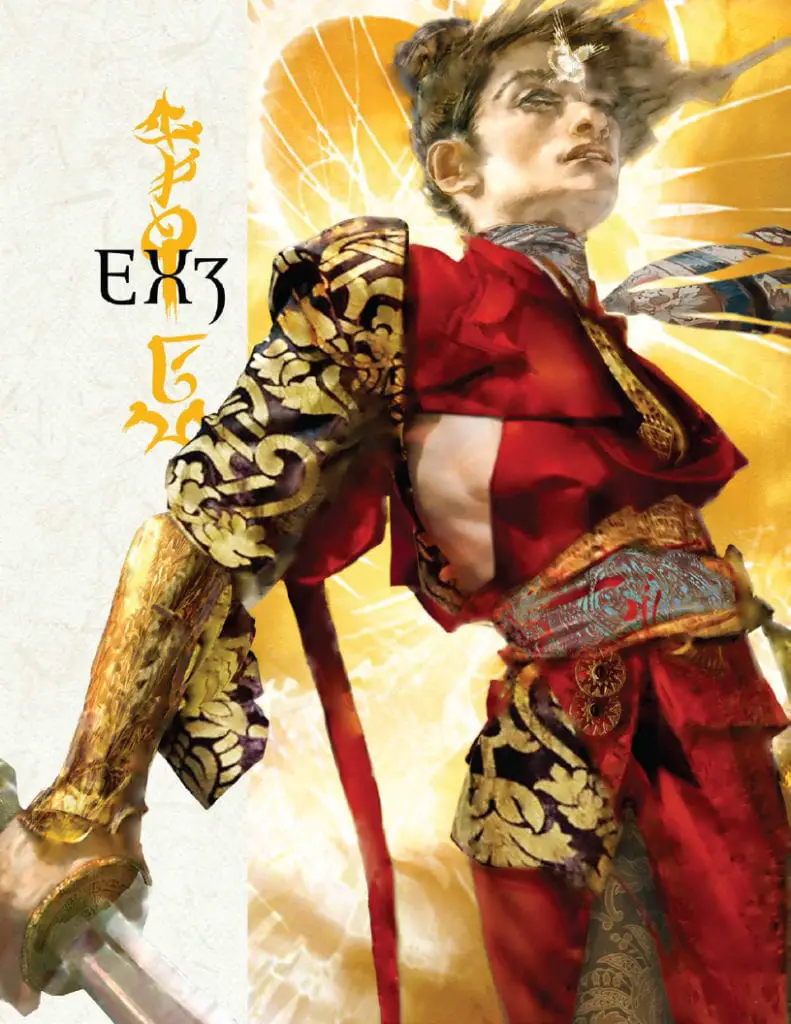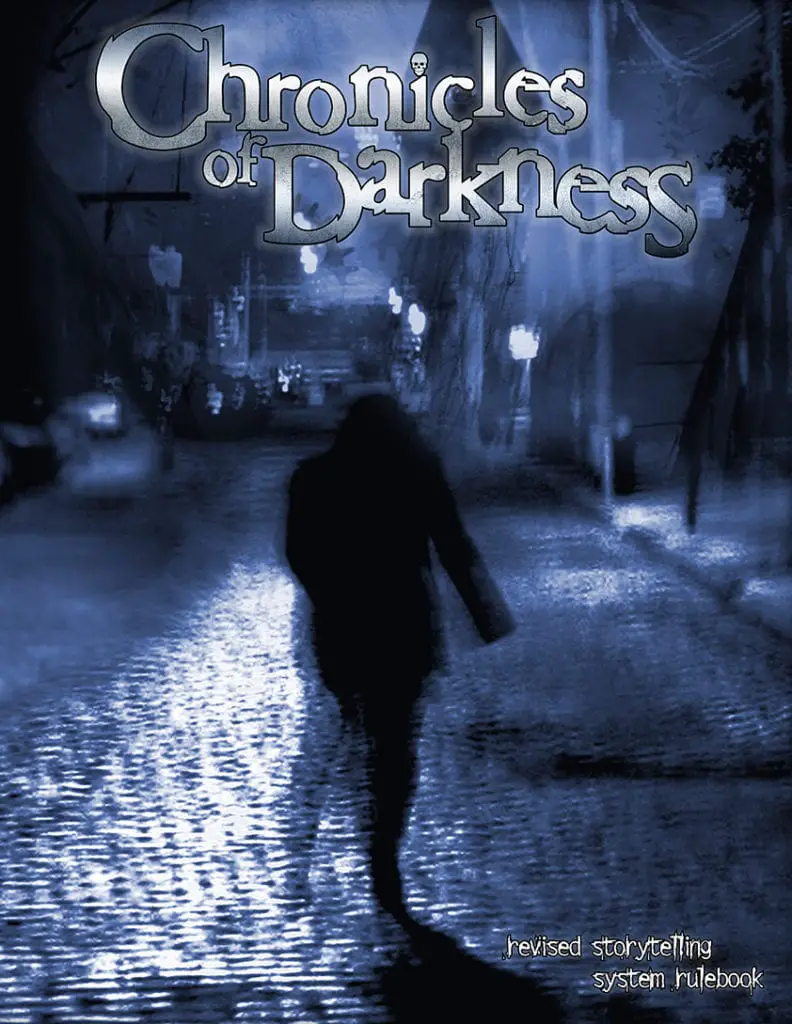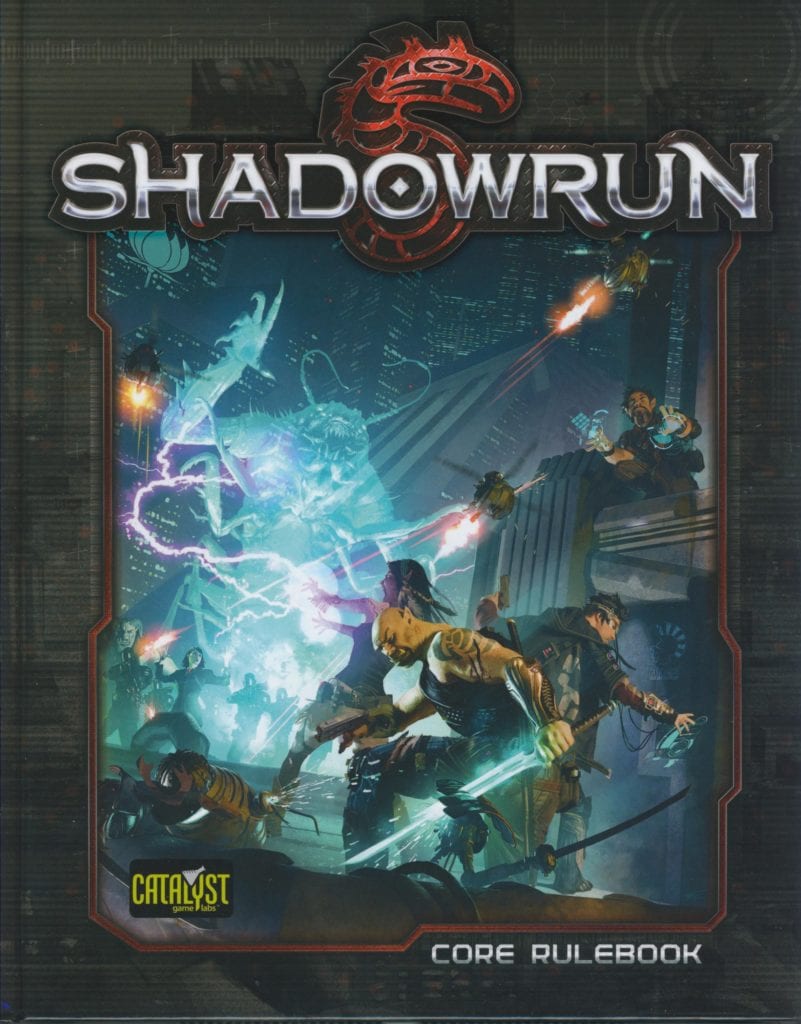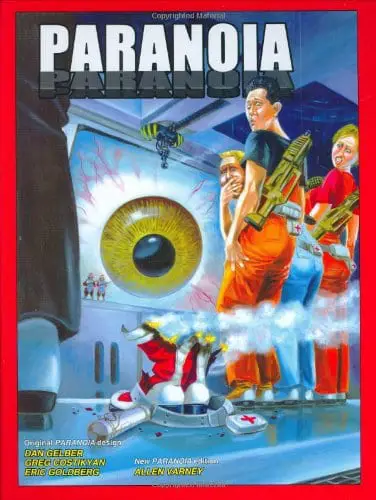Greetings readers of The Fandomentals! Last time, I wrote about the best way to get into tabletop RPGs. Where to find them, what you need to play, and who to play with. As I was finishing the article though, I had a thought: ‘Not everyone enjoys fantasy. And even if they do, not everyone is going to like Dungeons & Dragons.’ (Indeed, one of our very own writers here is not a fan of the game at all). So this time, we are going broaden our horizons slightly by looking at different five different games, all from different genres.
A word of warning before we begin though: ome of these games have a steeper learning curve than others. That’s not to say that they are impossible to learn, mind you. Just that you’re going to have to put in more work to learn the rules.
Exalted
Published by Onyx Path
Genre: High Fantasy/Wuxia

Exalted is probably the closest game on this list to Dungeons & Dragons, as they are both fantasy games. However, where Dungeons & Dragons was based on western, medieval fantasy, Exalted is based on eastern, Wuxia fantasy. Another major difference between the two games is that while Dungeons and Dragons can be high powered, Exalted is from the start. Eventually, your character can destroy a city with balls of fire from the sky, seduce a god, ride in and on giant magical mecha, and slay mountain sized behemoths (with or without the help of the giant magical mecha).
The story of Exalted takes place on a flat world, called Creation. Creation is floating upon a sea of chaos that is constantly trying overtake it. Beings called the Primordials formed Creation and ruled it for a time before being overthrown by the gods and their servants, the Exalted. The Exalted were mortals elevated to great heights with the gods power. Eventually, the Exalted defeated the Primordials and the gods gave Creation to the Exalted to rule as a reward.
There were four types of Exalted: Solar, (the strongest and the ones responsible for the actual governing of Creation) Lunar, (Shapeshifters who were charged with protecting Creation, they were the mates and companions of the Solar) Sidereal, (masters of fate, they were charged with protecting Creation from natural disasters and acting as advisors for the Solar) and Terrestrial (Super Soldiers wielding the powers of the elements. The weakest of the Exalted, but the only ones who can pass their abilities on to their children).
The last act of the Primordials would spell the doom for the Exalted, however. They cursed each of them, with the Solar suffering from it the worst. Instead of being noble and honorable, the Solar became tyrannical and petty. The Sidereal, blinded by the hubris brought on by their own curse, convinced the Terrestrial Exalted to overthrow the Solars and imprison their souls so there could never be another Solar Exalted. Because of this though, the Chaos lapping on the edges of Creation grew embolden and started to advance. It was only through sheer luck and the discovery of an ancient Solar weapon that the Terrestrial Exalted were able to drive off the Chaos for now.
The players in Exalted mostly control Solars, freed from their prisons (but not entirely free from their curse) and finally returned to the world. It has been centuries since they were last seen, and nearly everyone believes they were evil and twisted. The players must fight to save Creation, avenge their fallen brothers, and (maybe) take their place again as the rulers of Creation.
Chronicles of Darkness
Published by Onyx Path
Genre: Urban Horror

Onyx Path published another game on my list, called Chronicles of Darkness. Unlike Exalted though, which high powered Wuxia game, the Chronicles of Darkness is a horror game. It’s about never being sure who to trust, about never being in complete control of the situation.
Chronicles of Darkness takes place in the modern world. Everything that you know here exists over there except for the game world is, for lack of a better word, darker. The days are shorter, and the shadows are longer. But most of all, there are monsters that lurk in the shadows. Vampires stalk both the city streets and ritziest parties, using mortals as pieces in their games. Werewolves inhabit the border between the city and the wilderness, enforcing laws no human can understand and the punishment for breaking them is usually death. Mages perform experiments, their hubris pushing them further and further. Stranger creatures lurk in the cracks, just waiting for their chance to spill out…and you can play as any of them.
Chronicles of Darkness is not one game, but several, split into several different ‘game lines’, which all use the same general mechanics, with a few minor changes here and there for each specific game. The different game lines all have different rulebooks associated with them, called ‘splat books’.
The different game lines are as follows: Vanilla (where you play as a normal human), Vampire: The Requiem (Where you play as vampires), Werewolf: The Forsaken (Werewolves), Mage: The Awakening (Mages. Can you see a bit of a trend here yet?), Promethean: The Created (Frankenstein like monsters that travel the world trying to understand humanity and fleeing from angry mobs that want to destroy them), Changeling: The Lost (People who were kidnapped by fairies and managed to escape after years of abuse that changed the very nature of what they are), Geist: The Sin-Eaters (The character died, and then returned from death with a psychopomp sharing their soul, this allows them to see and interact with ghosts), Mummy: The Curse (the characters are undying mummies from a kingdom far older than Egypt and have lost almost all their memories of what they were like when they were human), Demon: The Descent (The characters are fallen angels of a Machine-God that pursues its own, inscrutable motives), Beast: The Primordial (The characters are an embodiment of one of humanity’s primal fears, and you need to feed) Deviant: The Renegade (An as of yet unreleased game line, you can play as the victim/subject of an evil scientist/cult who has changed your body into something inhuman, ala The Fly or Akira), and Hunter: The Vigil (You play as a normal human aware of the supernatural and you hunt any of the aforementioned groups. If you’re curious about this game, Michał wrote an article about it a year ago.)
The goals of most of these games can vary wildly, but most of them have at least one similar objective: Try and survive for as long as possible without sacrificing too much of your humanity. This overriding objective is what can really make this into a horror game. You are often given a difficult choice and one with no right answer: How much are you willing to sacrifice? What are you willing to sacrifice? And are you really sure you can go through with it?
Star Wars Roleplaying
Published by Fantasy Flight Games
Genre: Space Opera/Sci-fi

If there’s one franchise that people would love to fight in, have adventures in, and explore it would be…The Lord of the Rings. But a close runner up would be Star Wars. There have been other Star Wars games published in the past, but the newest (and in my opinion, one of the better made) ones published by Fantasy Flight is the one I will talk about today.
If you’re reading this article I’m going to assume you have some knowledge of Star Wars already, so I won’t bore you with the backstory. What I will say is that the game takes place during the Rebellion against the Empire, and that the game itself is actually three different games, with the same mechanics but different focuses. They are Edge of Empire, Edge of Rebellion, and Force and Destiny. In Edge of Empire, you play as a criminal, vagabond, or some other character on the wrong side of the law. In Edge of Rebellion, you play as a member of the Rebellion against the Empire. You have to try and keep your head down, even as you attempt to strike a blow against the Empire. And in Force and Destiny, you play either as a survivor of Order 66 or a new force sensitive, trying to make sense of your abilities while hiding from the Empire.
One of the unique aspects of the games is that each one has a different mechanic that can affect how each different adventure plays out. For example, Edge of Empire calls this unique mechanic Obligation. Your obligation can range from owing money to a crime lord, to having to make payments on a ship, to having a family you need to support. Before each adventure, each player rolls their Obligation score. If you fail the roll, the Obligation impacts your character negatively as they try to deal with it.
Another fun thing is that these games are completely compatible with each other. All you have to do to adopt a character from game to the other is to change that mechanic I mentioned. Want to play a former rebel pilot turned smuggler? Go for it. Feel the need to play as a gunrunner who begins to feel the force? Nothing is stopping you. Other then these two things, there really isn’t too much more to say about this game. It’s Star Wars. You know exactly what you’re getting into when you start to play. And, to be quite honest? It’s fun traveling a long, long time ago to a galaxy far, far away.
Shadowrun
Published by Catalyst Game Labs
Genre: Cyberpunk

If you have heard of Shadowrun recently, it was probably because of one of the extremely good video games (Shadowrun Returns, Dragonfall, and Hong Kong) that came out in the past couple of years. What you may not have known is that Shadowrun started as a tabletop RPG and since at least 2004 has seen quite a bit of a revival. Trying to put it into a genre is a bit tricky, because on one hand it is very cyberpunk…on the other hand, you can get a party of characters that resemble nothing more than a D&D party, only armed with guns and cybernetics.
Shadowrun’s basic premise is that on December 21, 2012 magic returned to the world. Dragons started to awake, women started to give birth to elves, dwarfs, orcs and trolls, and spirits started to wander the world again. The first people to take advantage of this new magical world are Native Americans, who carve out their own nations across North America. The real winners in this new world however are the megacorps. Megacorps are giant corporations that are extraterritorial and a law unto themselves. They can do whatever they want, to whomever they want with very little way to push back.
The players control Shadowrunners, freelancers that don’t work for any specific corporation or government. They do the jobs that the companies can’t acknowledge or, sometimes, can’t even do. The missions are normally can go one of two ways: Carefully planned by the players to take advantage of hacked computers and changes in the guard’s schedules…
Or (more likely) crazed gunfights across corridors and down the sides of buildings.
The players have quite a few options on what type of character to build as well. Different fantasy races, in addition to your playstyle as well. Do you want to be a hacker? Magic user? Gunfighter? Or do you want to be a cyborg with a katana? All these options and more are plausible. In an old game I played in, there was the charismatic leader of the party who was also our driver/drone pilot, the Russian troll who was our heavy weapons specialist, a drug addicted elf hacker and my character, the Native American mage who was probably the most optimistic of the bunch. Shadowrun is a very fun game that, if you enjoy cyberpunk at all, you’re going to enjoy. Just remember: “Watch your back, shoot straight, conserve ammo, and never, ever, cut a deal with a dragon.”
Paranoia
Publisher: Mongoose Publishing
Genre: Dark Comedy/Science Fiction

“I am sorry Citizen! This following section is for Ultraviolet Clearance only! Clicking on this article without proper security clearance is Treason! Please proceed to your nearest termination booth! Have a nice daycycle, and remember: The Computer is your friend!”
This game is probably the strangest one I’ve covered so far. Mostly, because there is no real grand adventure in it. No saving the day, no stealing or recovering an artifact. No, you’re trying to get part 17-GHO but only have the authorization to get part 17-GH0. And in order to replace it you have to get into an area that you don’t have the authority to access. Paranoia is a darkly humorous game of bureaucratic nightmares, logistical logjams, and well…paranoia.
The game takes place in Alpha Complex: a vast, underground city run by a supercomputer known as ‘Computer’ or ‘Friend Computer’. At some point in the past, a disaster wiped out all life except inside Alpha Complex, leaving the Computer left trying to figure out what went wrong. Due to corruption in Computer’s databanks, the only information it had was Cold War propaganda. It was then convinced that Communists were responsible and set out trying to destroy them. Computer quickly discover (what it thinks) is the natural ally of the Communist: Mutant humans with strange powers. Along the way, thanks to more corruption and purposeful sabotage from the ‘High Programmers’, the computer has acquired a hatred of any and all secret societies as well. It assumes (correctly, in most cases) that the secret societies are trying to take over/destroy Alpha Complex.
This is where the players come in. The players control RED security clearance ‘troubleshooters’. (In Alpha Complex, security clearance from lowest to highest follows a ROY G BIV scale, with Infrared at the very bottom, followed by Red, Orange, Yellow, Green, Blue, Indigo, Violet with Ultraviolet at the very top.) Their goal is in the name: find what’s troubling Friend Computer, and shoot it. Complicating matters is the fact that due to decades of cloning and exposure to radioactive materials, everyone is a mutant. And all the players just happen to be members of a secret society. The players real goal is to try to survive for as long as possible while exposing their teammates as traitors.
You will die in this game. A lot. Probably more than once per mission. Betrayed by your teammates, vaporized by Friend Computer for Treason, having a mechanical issue with your gun causing it to backfire in your face…and all this before figuring out what you’re even supposed to do on your mission! It’s a good thing you’re provided with six back-up clones, and can buy more. The other fun thing about the game is that technically, knowing the rules of it is treason. If the GM catches you knowing the rules, they will execute your character, and a new clone brought in. Of course, this shouldn’t stop you from taking advantage of the rules to betray a teammate. Just…make sure that the GM doesn’t know you’re doing it. It’s that kind of game.
If this sounds kind of slapstick and a little dark at the same time…it should. You can play Paranoia played completely straight (and it becomes something akin to Terry Gilliam’s Brazil written by Kafka). Or it can be completely silly (where it turns into the most bonkers, over the top episode of Looney Tunes). It all depends on your group and GM. No matter what style of play you go for though, always remember: The Computer is your Friend!
***
And there you have it. Five games ranging from Dark Comedy to horror to space opera! Keep in mind there are hundreds of other games out there. And what I’ve talked about here is only a thumbnail sketch of the games themselves. There are also hundreds of indie games out there that are as good as the games I’ve mentioned here. I may talk about a few eventually. In the meantime, I hope this has inspired you to look at some new games and hopefully try a few new ones out.

